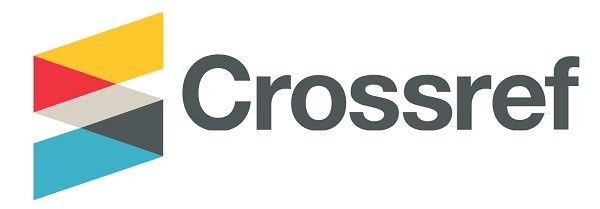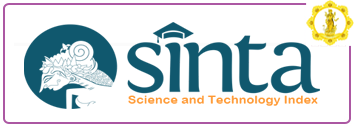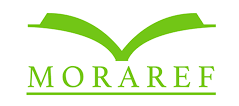Dilema Ex-Officio Terkait Pencegahan Korupsi Dan Penjaminan Mutu Di Perguruan Tinggi Swasta
DOI:
https://doi.org/10.25078/jpm.v6i1.1169Keywords:
Ex-officio, higher education, corruptionAbstract
Conflicts of interest are the entry point for the abuse of power and corruption. The implementation of a manipulative ex-officio system that tends to perpetuate the oligarchy will cause a corrupt behavior in the governance of private higher education institutions. To date, studies on ex-officio related to higher education governance have never been discussed academically. The purpose of this study, thus, aims to criticize the application of ex-officio and its potential consequences in the supervision system at private higher education institutions. The study used a qualitative exploratory and the literature study was employed. The result reveals that the ex-officio is a legal model used in many higher education institutions. However, in its application it can lead to conflicts of interest and abuse of power which in turn has the potential of corrupt behavior university governance.
Downloads
References
Abernethy, M. A., & Stoelwinder, J. U. (1995). The role of professional control in the management of complex organizations. Accounting, Organizations and Society, 20(1), 1–17. https://doi.org/10.1016/0361-3682(94)E0017-O
Abidin, A. A. (2017). Manajemen Pembiayaan Pendidikan Tinggi dalam Upaya Peningkatan Mutu (Studi Kasus Pada Perguruan Tinggi Swasta Menengah di Surabaya). Jurnal Penjaminan Mutu, 3(1), 87–99.
Alatas, S. H. (1987). Korupsi: Sifat, Sebab dan Fungsi. LP3ES.
Birnbaum, R. (1988). How Colleges Work: The Cybernetics of Academic Organization and Leadership. Jossey-Bass.
Blaschke, S., Frost, J., & Hattke, F. (2014). Towards a micro foundation of leadership, governance, and management in universities. Higher Education, 68, 711–732. https://doi.org/10.1007/s10734-014-9740-2
Bridgman, T. (2007). Freedom and autonomy in the university enterprise. Journal of Organizational Change Management, 20(4), 478–490. https://doi.org/10.1108/09534810710760036
Chou, M. H., Jungblut, J., Ravinet, P., & Vukasovic, M. (2017). Higher education governance and policy: An introduction to multi-issue, multi-level and multi-actor dynamics. Policy and Society, 36(1), 1–15. https://doi.org/10.1080/14494035.2017.1287999
Des Autels, P. (2016). Power, virtue, and vice. Monist, 99, 128–143. https://doi.org/10.1093/monist/onv033
Donina, D., Meoli, M., & Paleari, S. (2015). Higher education reform in Italy: Tightening regulation instead of steering at a distance. Higher Education Policy, 28, 215–234. https://doi.org/10.1057/hep.2014.6
Dorasamy, N. (2013). Good Governance and Whistleblowing: A Case of a Higher Education Institution (HEI) in South Africa. Journal of Social Sciences, 34(2), 105–114. https://doi.org/10.1080/09718923.2013.11893122
Erdianti. (2014). Strategi Kepala Sekolah Sebagai Supervisor Dalam Mengembangkan Kompetensi Profesional Guru. Al-Ta’dib, 7(1), 37–53.
Ferlie, E., Musselin, C., & Andresani, G. (2008). The steering of higher education systems: A public management perspective. Higher Education, 56(3), 325–348. https://doi.org/10.1007/s10734-008-9125-5
Fursova, V., & Simons, G. (2014). Social Problems of Modern Russian Higher Education: The Example of Corruption. International Education Studies, 7(10), 25–31. https://doi.org/10.5539/ies.v7n10p25
Garwe, E. C., & Tirivanhu-Gwatidzo, S. (2016). A Comparison of in University Governing Boards in Private and Public Universities. International Research in Higher Education, 1(1), 145–152. https://doi.org/10.5430/irhe.v1n1p145
Gerber, P. D., Nel, P. S., & Dyk, P. S. Van. (1998). Human Resource Management (4th ed.). Thompson.
Hallak, J., & Poisson, M. (2007). Corrupt schools, corrupt universities: what can be done? Ethics and corruption in education (Issue January). International Institute for Educational Planning. http://unesdoc.unesco.org/images/0015/001502/150259e.pdf
Hamilton, A., Madison, J., & Jay, J. (1987). The Federalist Papers. Penguin Books.
Hapsari, A. N. S., & Seta, D. W. (2019). Identifikasi Kecurangan Dan Whistleblowing Universitas. Jurnal Riset Akuntansi Dan Keuangan, 7(1), 131–144. https://doi.org/10.17509/jrak.v7i1.15424
Hitimana, S., Tuyisenge, J., & Munyengabe, S. (2017). Higher Education for Development : An Exploration of the Necessities , Barriers of Management , Governance and Regulation of Higher Learning Institutions in Developing Countries. Journal of Education and Practice, 8(32), 81–87.
Jamaluddin, A. (2017). The conflicting behavior of the government institutions in the arrangement of local income and budget expenditures. Quest Journals, 5(2), 70–77.
Kickert, W. (1995). Steering at a Distance: A New Paradigm of Public Governance in Dutch Higher Education. Governance: An International Journal of Policy and Administration, 8(1), 135–157. https://doi.org/10.1111/j.1468-0491.1995.tb00202.x
Kohn, L. (2013). The Burgeoning Constitutional Requirement of Rationality and the Separation of Powers : Has Rationality Review gone too far? South African Law Journal, 130, 810–836. http://0-reference.sabinet.co.za.oasis.unisa.ac.za/webx/access/electronic_journals/ju_salj/ju_salj_v130_n4_a9.pdf
KPK. (2017). Menguatkan Tata Kelola Transparansi Informasi Publik di Perguruan Tinggi. Komisi Pemberantasan Korupsi. https://acch.kpk.go.id/id/ragam/riset-publik
Kuslina, B. H., & Widjaja, J. H. (2018). Leadership Change and Cultural Planning : A Private University Case Study in Indonesia. Review of Integrative Business and Economic Research, 7(2), 62–74.
Kwiek, M. (2015). The unfading power of collegiality? University governance in Poland in a European comparative and quantitative perspective. International Journal of Educational Development, 43, 77–89. https://doi.org/10.1016/j.ijedudev.2015.05.002
Lewis, L. S. (2017). When Power Corrupts. Routledge.
Ludigdo, U. (2018). Korupsi Di Perguruan Tinggi. Jurnal Transformative, 4(1), 1–12.
Maassen, P., & Olsen, J. P. (2007). University Dynamics and European Integration. Springer.
Macfarlane, B., Zhang, J., & Pun, A. (2012). Academic integrity: a review of the literature. Studies in Higher Education, 1–20. https://doi.org/10.1080/03075079.2012.709495
Magalhaes, A., & Amaral, A. (2009). Mapping Out Discourses on Higher Education Governance. In International Perspectives on the Governance of Higher Education: Alternative Frameworks for Coordination (pp. 182–197). Routledge.
Mangu, A. M. B. (1998). Separation of Powers and Federalism in African Constitutionalism: The South African Case. http://uir.unisa.ac.za/bitstream/handle/10500/18185/dissertation_mangu_amb.pdf?sequence=1
Marbun, A. N. (2017). Suap di Sektor Privat: Dapatkah Dijerat? Jurnal Anti Korupsi INTEGRITAS, 3(1), 53–85.
Maulidiana, L. (2014). Fungsi Otoritas Jasa Keuangan Sebagai Lembaga Pengawas Perbankan Nasional di Indonesia. Keadilan Progresif, 5(1), 1–19.
Milad, M. K., Wibowo, A. T., & Athoillah, Y. (2019). Penguatan Tata Kelola Transparansi Informasi Publik , Akuntabilitas , dan Efisiensi Keuangan di Universitas Demi Mewujudukan Good University Government. OECONOMICUS, 3(2), 91–104.
Mintzberg, H., J, L., Quinn, J. B., & Goshal, S. (2003). The Strategy Process: Concepts, Contexts, Cases (4th ed.). Pearson Education.
Mohamedbhai, G. (2016). The Scourge of Fraud and Corruption in Higher Education. International Higher Education, 84, 12–14. https://doi.org/10.6017/ihe.2016.84.9111
Munzhedzi, P. (2017). The Role of Separation of Powers in Ensuring Public Accountability in South Africa : Policy Versus Practice. 80–86.
Muttaqin, E. Z. (2015). Konsep Pemisahan Kekuasaan (Separation of Power) Pasca Amandemen UUD 1945 Antara Lembaga Eksekutif dan Legislatif. Al Qisthas Jurnal Hukum Dan Politik, 6(1), 14–31.
Nurunnabi, M. (2016). Political governance and (account)ability of private universities in developing countries. International Journal of Public Sector Management, 29(6), 522–544. https://doi.org/10.1108/IJPSM-09-2014-0112
O’Regan, K. (2005). “Checks and Balances Reflections on the Development of the Doctrine of Separation of Powers Under the South African Constitution.†Potchefstroom Electronic Law Journal/Potchefstroomse Elektroniese Regsblad, 1–30. https://doi.org/10.17159/1727-3781/2005/v8i1a2835
Osipian, A. L. (2012). Loyalty as rent: Corruption and politicization of Russian universities. International Journal of Sociology and Social Policy, 32(3/4), 153–167. https://doi.org/10.1108/01443331211214730
Prinsloo, S. (2016). The dual role of the principal as employee of the Department of Education and ex officio member of the governing body. South African Journal of Education, 36(2), 1–9. https://doi.org/10.15700/saje.v36n2a498
Putra, A. (2017). Menguatkan Tata Kelola Transparansi Informasi Publik di Perguruan Tinggi. Integritas, 3(1), 173–189. https://acch.kpk.go.id/id/artikel/riset-publik/menguatkan-tata-kelola-transparansi-informasi-publik-di-perguruan-tinggi
Rozuli, I. ., Haboddin, M., & Purnomo, J. (2016). Memahami Kompleksitas Korupsi. FISIP Press.
Salahudin, Nurmandi, A., Fajar, M., Mutiarin, D., Siregar, B., Sulistyaningsih, T., Jainuri, Agusta, R., & Karinda, K. (2019). Developing integrity university governance model in Indonesia. International Journal of Higher Education, 8(5), 185–199. https://doi.org/10.5430/ijhe.v8n5p185
Schmidt, C. R. (2015). Learning Points From Whistleblower Claims Against Institutions of Higher Education. Problems of Management in the 21st Century, 10(2), 110–120. http://search.ebscohost.com/login.aspx?direct=true&db=bah&AN=112174078&site=ehost-live
Subekti, R., & Tjitrosoedibio. (1982). Kamus Hukum. Pradnya Paramita.
Suci, A. (2017). Penjaminan Mutu Perguruan Tinggi: Dilema Politik Organisasi Dan Urgensi Penggunaan Profesional Eksternal. Jurnal Penjaminan Mutu, 3(2), 215–222. https://doi.org/10.25078/jpm.v3i2.202
Thomas, A. (2014). Internal governance imperatives for universities. African Journal of Business Ethics, 4(1), 25–36. https://doi.org/10.15249/4-1-62
Torres, R. M. D. la T., & Melgoza, E. E. T. (2010). 1.1. Ideas preliminares. Derecom, 4(1), 1–13.
Transparansi International Indonesia. (2017). Buku Panduan Pencegahan dan Pengendalian Konflik Kepentingan di Perguruan Tinggi. https://doi.org/10.1017/CBO9781107415324.004
Widayat, P. (2018). Peran Akreditasi Dalam Menarik Minat Mahasiswa. Jurnal Penjaminan Mutu, 4(2), 199–207.
Wiwoho, J. (2017). Peran SPI dalam Meningkatkan Tata Kelola Perguruan Tinggi.









